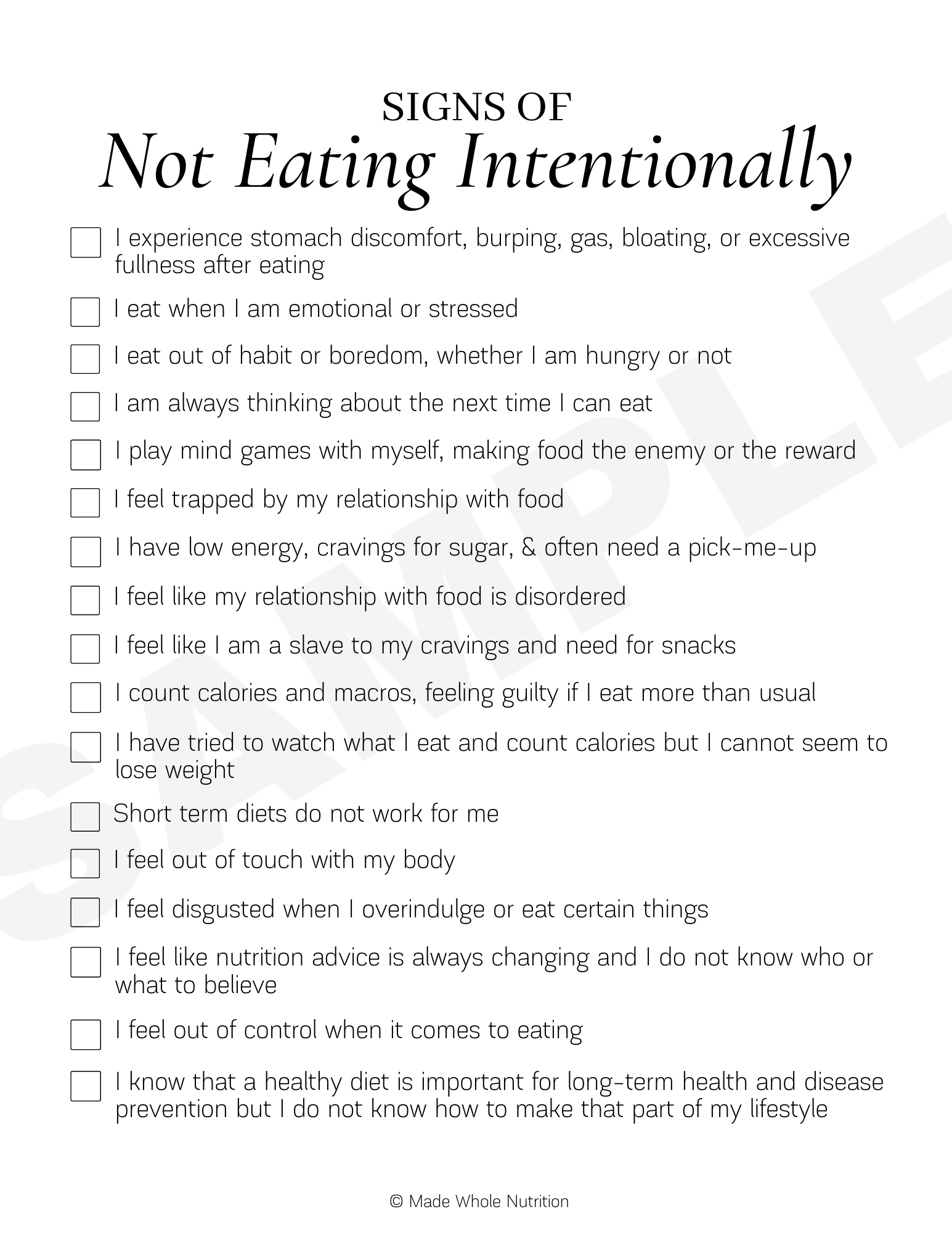17 Signs of Not Eating Intentionally
I experience stomach discomfort, burping, gas, bloating, or excessive fullness after eating (you might need to optimize stomach acid)
I eat when I am emotional or stressed
I eat out of habit or boredom, whether I am hungry or not
Short term diets do not work for me
I play mind games with myself, making food the enemy or the reward
I have low energy, cravings for sugar, & often need a pick-me-up (you may have low-blood sugar swings)
I feel like my relationship with food is disordered
I feel like I am a slave to my cravings and need for snacks
I count calories and macros, feeling guilty if I eat more than usual
I have tried to watch what I eat and count calories but I cannot seem to lose weight
I feel out of touch with my body
I feel disgusted when I overindulge or eat certain things
I feel like nutrition advice is always changing and I do not know who or what to believe
I feel out of control when it comes to eating
I feel trapped by my relationship with food
I am always thinking about the next time I can eat
I know that a healthy diet is important for long-term health and disease prevention but I do not know how to make that part of my lifestyle
Are you a health educator that wants to use this content with your clients? Customize the handout template in less time than it would take to even think about hiring a graphic designer.
References
Tribole, E., & Resch, E. (2019). Intuitive Eating. Retrieved from https://www.intuitiveeating.org.Mindful Eating. The Nutrition Source. Havard School of Public Health. Retrieved from https://www.hsph.harvard.edu/nutritionsource/mindful-eating/
Center for Nutritional Pyschology. Retrieved from https://www.nutritional-psychology.org/research-studies/
Hazzard, V. M., Telke, S. E., Simone, M., Anderson, L. M., Larson, N. I., & Neumark-Sztainer, D. (2021). Intuitive eating longitudinally predicts better psychological health and lower use of disordered eating behaviors: findings from EAT 2010-2018. Eating and weight disorders : EWD, 26(1), 287–294. https://doi.org/10.1007/s40519-020-00852-4
Brewer, J. A., Ruf, A., Beccia, A. L., Essien, G. I., Finn, L. M., van Lutterveld, R., & Mason, A. E. (2018). Can Mindfulness Address Maladaptive Eating Behaviors? Why Traditional Diet Plans Fail and How New Mechanistic Insights May Lead to Novel Interventions. Frontiers in psychology, 9, 1418. https://doi.org/10.3389/fpsyg.2018.01418
Fuentes Artiles, R., Staub, K., Aldakak, L., Eppenberger, P., Rühli, F., & Bender, N. (2019). Mindful eating and common diet programs lower body weight similarly: Systematic review and meta-analysis. Obesity reviews : an official journal of the International Association for the Study of Obesity, 20(11), 1619–1627. https://doi.org/10.1111/obr.12918






